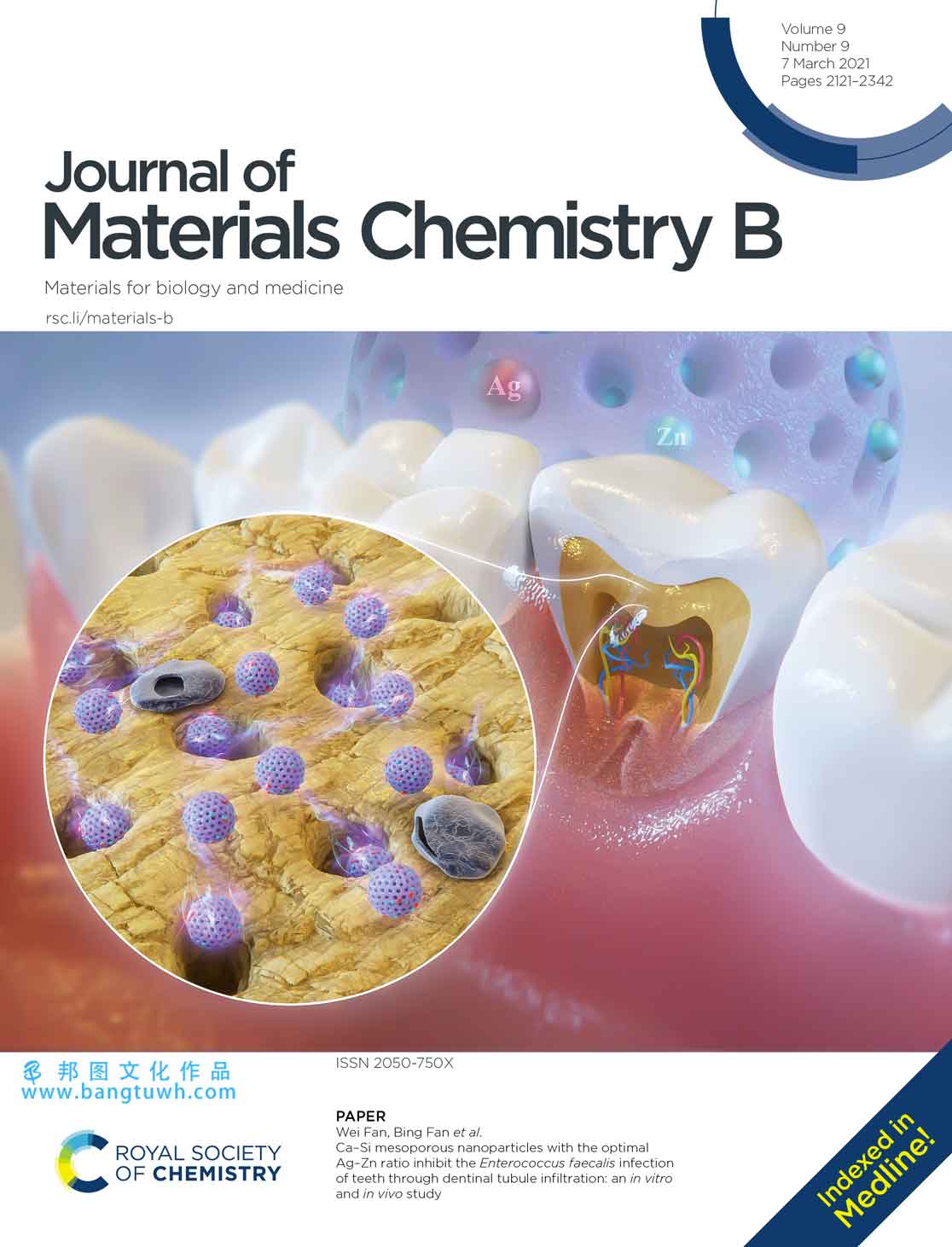
科研绘图sci画图作图学术杂志封面设计toc示意图文章配图医学动画





enterococcus faecalis is the main cause of refractory root canal infections in human teeth. the control of root canal infection is one of the conditions necessary for the successful treatment of refractory root canal infections. in the present study, nano-scale silver–zinc–calcium–silica particles loaded with different ratios of silver–zinc were successfully prepared (ag0.5zn3-mcsns and ag0.5zn10-mcsns). the release profiles, antibacterial activity against e. faecalis, infiltration depth into dentinal tubules, biocompatibility and effects on dentin microhardness in vitro were investigated. in addition, the antimicrobial effects of the particles against enterococcus faecalis reinfection were evaluated in vivo in the teeth of beagle dogs. ag, zn, ca and si were released from ag–zn-mcsns, and the atomic ratio of silver and zinc released can reach the optimal value of 1 : 12 (ag0.5zn10-mcsns). the particles also showed good biocompatibility and antibacterial activity against enterococcus faecalis and did not reduce the hardness of dentin. the nanoparticles could be driven into the dentinal tubules of dentin slices by ultrasonic activation. in the root canals of beagle dogs, both ag0.5zn3-mcsns and ag0.5zn10-mcsns demonstrated strong preventive effects against e. faecalis infection. the ag–zn–ca–si mesoporous nanoparticles may develop into a new effective root canal disinfectant or root canal sealer.



微信扫一扫,加设计师好友
17621261539
周一至周五8:30-18:00

提升“研值”

工作人员将在1个小时内联系您。

